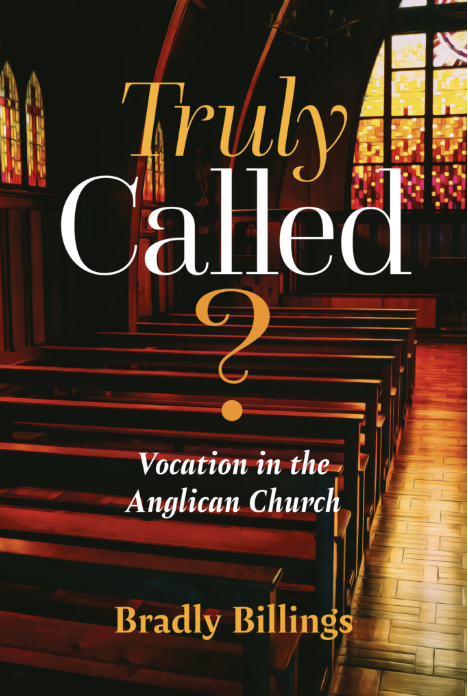Book review: Truly Called? Vocation in the Anglican Church
Sunday, 19 November 2023
| Neville Carr

Truly Called? Vocation in the Anglican Church
By Brad Billings
(Mulgrave, Vic: Broughton, 2023)
The stated purpose of this book ‘is to provide guidance, and resources, for those who may be sensing that Jesus is calling them to participate in the harvest by offering themselves to be labourers for the gospel in an ordained capacity … how such a call may arise, and how it might be discerned and examined, but individually and corporately’ (p. xi). Alongside the list of affirmations in the Foreword (p. iv-vii), this purpose is clearly achieved, including Appendices and Resources (pp. 132-138).
Some qualifications:
In Billings’ discussion about knowing oneself (ch. 1), knowing God is essential, as Calvin taught. However, an ordination candidate’s emotional intelligence is also critical, in addition to the important qualities and characteristics listed in ch.3 (prayerfulness, suitability, dedication, humility, authenticity, resilience).
Billings refers to ‘the lifelong vocation of ordained ministry’ (p. 55), referring to 1 Timothy 5:22, which he translates, ‘Do not ordain anyone hastily’ (emphasis added). But this doesn’t refer to ordination (solo or team ministry) as we know it, which had its origin in the ‘ordo’ or ‘holy orders’ of the fourth and fifth centuries. The Greek text says, ‘Don’t be hasty in the laying on of hands’, referring ‘neither to ordination nor to receiving lapsed believers, but a caution against hastily accusing an elder of wrongdoing’ (see Brian P. Irwin, ‘The Laying on of Hands in 1 Tim. 5:22: A New Proposal’, Bulletin of Biblical Research 18, no. 1 (2008): 123-29).
The author asserts ‘there is no differentiation … between any forms of ministry … by … the baptized, but only a distinction of roles and a diversification of responsibilities’. Notwithstanding, he accepts ‘a hierarchy in the household of God … especially in episcopal churches like the Anglican Church’, saying ‘there must be a form of hierarchy and authority to ensure the effective functioning of the church’ (p. 65, emphasis added). Really?
When comparing those entering ‘Holy Orders’ – a ‘lifelong vocation’ – with those in a normal occupation or career, he claims that “Holy Orders” is much deeper than any of this’ (p. 66). For such a person, it is ‘generally impossible’ to ‘separate life from work, and work from life’. A problematic inference of this might be a disempowering elitism, which sets the clergy vocation above others.
Some readers might be concerned about ‘clericalism’ here, where ‘ordination entails a setting apart from among the laity’, or, to quote Richard Hooker (1554-1600), ‘ministerial power is a mark of separation’ (p. 68).
Despite such concerns, I particularly enjoyed the helpful history of Anglicanism, with its seminal Book of Common Prayer. When I entered an Anglican theological institution as a Baptist years ago, I loved the daily chapel services, prayers, creeds, hymns and lectionary readings.
I commend this book with a few reservations – about the controlling tendency of many Anglican clergy, the attractional, non-dialogical culture, the absence of a missional, prophetic and servant modus operandi – all in the face of an increasingly hostile world.
For potential ordination candidates, tread warily when reading this book. For readers interested in more traditional Anglican patterns of church, ministry and leadership, see what you think!
Neville Carr was the former Dean of Humanities and Education, St John’s University, Tanzania. He is Chair of the Ethics Committee of the Christian Research Association and was Chair of the Academic Board of Eastern College.